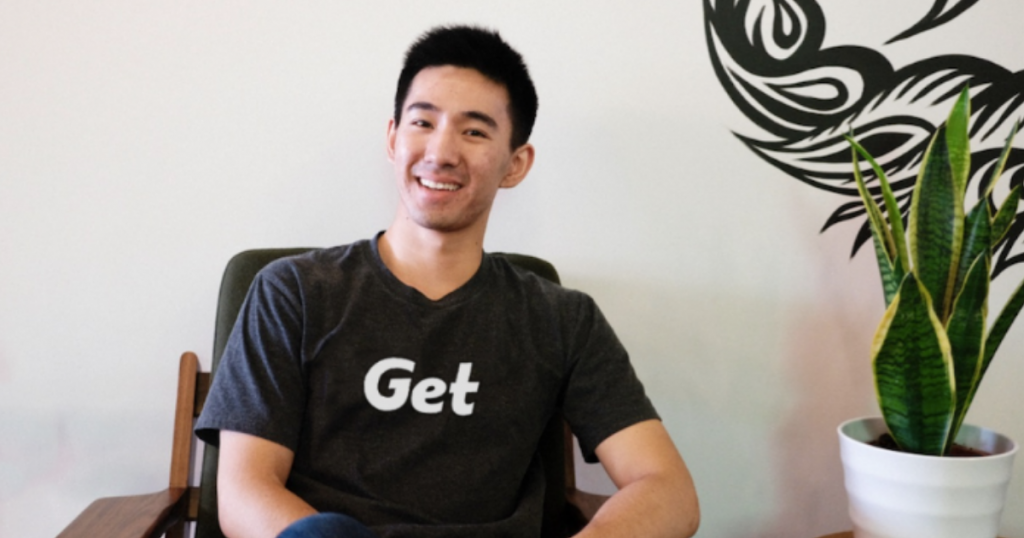If you’ve ever held the role of a treasurer of a school club or society during your tertiary and graduate school days, you might relate to the hassle of chasing payments from members.
According to this platform called Get, previously known as Qnect, committees spend more than 80 hours on average organising and collecting money, tickets, and forms.
Get is described as an “online platform that facilitates payments for university clubs and societies” and is also available as a mobile app.
It lets students purchase event tickets, merchandise, and club memberships, eliminating the need for manual entries in Excel spreadsheets or Google Docs, printouts, and cash in tins.
Over 400 organisations and institutions, more than 220,000 members across Singapore, Australia, and Hong Kong are onboard, and US$6 million have been collected using Get.
The National University of Singapore (NUS) and KPMG are some of the organisations onboard the platform.
This young startup, founded in 2016 by 23-year-old Daniel Liang, has just raised US$2.5 million (~S$3.46 million) in a funding round led by Temasek-backed Vertex Ventures SEA & India, and participating investors include existing angel Click Ventures.
Funds will be used to expand locally and internationally, for product development, and building the teams in each country they’re present in.
The “Campus Social Ticketing Startup”
Sydney-born Daniel sold the first company he co-founded, Empire Entertainment to one of Australia’s largest events organisers within two years of running it when he was just 17 in his first year of study.
Having worked as a club promoter organising events and selling event tickets, he noticed that people “only bought tickets to events that they knew for sure their friends were attending [or had] paid”.
“Just like ticketing, friends are excited when they see their friends purchase.”
When he was a student society president, he did a research and discovered that over 2,000 society teams at Australian universities collected payments and member information using cash in tins at lunch halls, Eventbrite, bank transfers, and Google forms.
He also found that this problem is happening globally and saw a “massive untapped market, which paved the way for Get (Qnect)” to help users search for events and provides validation for sellers.
“We did a startup competition in Hong Kong. [While] there we saw the pain points of [local] clubs and societies,” he shared.
“During that time, we met some great team members that were passionate and had brought the idea (to the table) and so we executed on it together.”
Get was formally launched in Hong Kong in September 2017.
This year, he moved to Singapore to set up headquarters attract talent as he found it a strategic geographic position to grow across ASEAN.
Clement Tay, Country Manager at Get said in a statement, “We looked at markets where student and youth leadership empowerment was actively encouraged and Singapore has been promoting this on a national level and at campuses.”
“[There is] high demand from student clubs in Singapore requesting to use Get after our entry to Hong Kong [which] made Singapore an exciting opportunity to further fulfil our mission.”
Clubs And Societies ‘Get’ It
Besides using it for collecting payments and purchasing event tickets and merchandise, Daniel explained to me that a faculty or club executive can use Get to understand their member base and issue digital membership cards.
When a transaction has been made, the platform will instantly send an SMS and email confirmation, and if a member prefers to pay with cash, the platform facilitates that as well.
For students, they can use Get to find new co-curricular activities (CCAs), clubs and societies, see what tickets their friends have bought or events they’re going to.
Get also acts as a ‘pocket’ that contains CCA points.
“One of the main reasons we changed our name to ‘Get’ was that it brought us closer to our mission of helping students get their hands on the things they want,” Daniel said.
“Often, the things they want are heavily inspired and dictated by the actions of their peers, which is why the social aspect underpinning this platform is so important.”
Wang Lu, President of NUS Engineering Club added, “GET offers an integrated platform to manage club events, merch, memberships and engage our members, we can reduce tedious manual work and focus on serving our engineering students.”
‘Get’ Going
Daniel believes that investors are attracted to Get because the team understands clubs and societies well, like knowing what they need to manage a member base, to sell, and communicate.
“We are able to execute quickly, nimbly, whilst keeping our eyes open to opportunities that arise,” he added.
Managing Partner of Vertex Ventures, Mr Chua Joo Hock anticipates working together with Get, saying, “The social element of Get’s model is the missing gap in the market for community selling online or in-person.”
“The younger cohort is inherently social, and Get is really one of the only services that leverages this insight as the basis for a payments platform.”
Right now, the team consists of four people including Daniel and they are looking to fulfil roles in design, software engineering, marketing and partnerships.
In five years’ time, Daniel hopes to expand into Southeast Asia and beyond.
“We’re looking for strategic partners to help us realise our vision of expanding to 100 universities and 3,500 organizations across Southeast Asia and become a popular payments collection tool in university organizations,” he said.
Check out Get for yourself here.
Featured Image Credit: Get
Also Read: DBS Gives Startups A Helping Hand: Matches Them With S’pore Companies To Co-Create Biz Solutions










